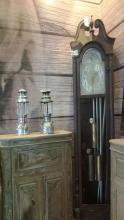70 years ago: Hong Kong's wartime diaries
2 Aug 1944, R. E. Jones Wartime diary
Submitted by Admin on Fri, 2014-06-06 11:56Book / Document:Date(s) of events described:Wed, 2 Aug 1944Not a good night for sleep or weather. Showery W.wind.
Very poor tiffin, majority of Camp had bare rice only. Lorry arrived 3.30pm so the evening meal was a little better but late.
Another meeting of R of I, Block Chairmen & Jap this aft.
With Steve pm.
Mary dis. from Hosp.
No new, no papers.
More rice & oil arrived pm.
Sabang captured?
No smokes.
Some talk re Adm. taking over private gardens.
2 Aug 1944, Eric MacNider's wartime diary
Submitted by Old Man on Wed, 2014-07-02 12:27Book / Document:Date(s) of events described:Wed, 2 Aug 1944Roll call nightly at 8 p.m. ((not sure this belongs belongs here, or to date above))
BO
2 Aug 1944, Harry Ching's wartime diary
Submitted by Admin on Wed, 2014-07-02 21:01Book / Document:Date(s) of events described:Wed, 2 Aug 1944Planes over early a.m. Two alerts. Some explosions.
02 Aug 1944, John Charter's wartime journal
Submitted by HK Bill on Thu, 2022-02-03 13:09Book / Document:Date(s) of events described:Wed, 2 Aug 1944July has gone and now we are in August. I wish I could wake up tomorrow morning and find that August, September and October had sped by. It seems awful to wish away whole chunks of normally precious time, but time here is nothing more than a burden to be borne and the sooner it goes the better. Besides by the end of September or October I really expect things to begin to happen fast. It seems that by then the position of internees in this camp may indeed be critical, for the food situation is becoming acute.
On August 1st the administration (Japanese) of this camp was again changed. At the beginning of the year military guards took the place of the gendarmerie who had hitherto patrolled the place; but the actual administration of the camp was still carried on by the Foreign Affairs section of the local Japanese Government although people like Mr Hatori were given rank as officers – he became Colonel Hatori and no doubt Meijima is Major or something like that. But now the camp administration has been taken over by the Military Authorities. The man in charge is (I think) Colonel Takanada, though he has not yet arrived in camp.
The Civil Authorities handed over officially on August 1st, though on July 31st we had a large scale roll-call or parade. All residents had to line up outside their blocks at the given signal (we turned out at about 8.40). When the officers came round with the lists, our names were read out and each person had to take one step forward. We were allowed to sit on cushions or stools while waiting (chairs were verboten) and were lined up outside our block in alphabetical order in two ranks. Two Japanese officers with Bickford of the Colonial Secretary’s Office staff and two guards came round (our Block Chairman also in attendance). Bickie read out the names, while the senior officer (who evidently read English well) followed with another list (I heard him repeating the names as he passed me). Instead of moving forward a pace, we were told to stand up when our names were called. This is the only roll-call here where we have had our individual names called. It all went off quite quickly and smoothly.
Later a bulletin was issued thanking the internees, on behalf of the Japanese, for our co-operation and the efficiency with which the roll-call was conducted. It was stated that one officer wanted to know why we all looked so miserable and unfriendly! Well, I don’t know quite what they expected from us. No doubt they were merely confronted by somewhat stolid and expressionless British countenances! We certainly did not raise a vociferous cheer. They were evidently so impressed by the roll-call that they ordered another one the following day! This was just an ordinary parade, however, and just the numbers were checked.

